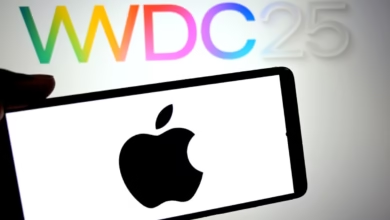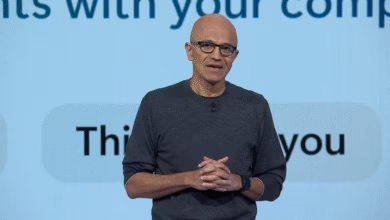Vibe Coding: The Future of Engineering Jobs?

▼ Summary
– Steve Yegge, a former Google and AWS engineer, demonstrates AI’s ability to generate code across multiple projects simultaneously, highlighting its efficiency.
– Advanced AI coding models from companies like OpenAI and Anthropic are disrupting the tech industry, raising concerns about developer job security.
– AI models have evolved from autocompleting small code snippets to building entire apps, a shift termed “vibe coding” by researcher Andrej Karpathy.
– While AI’s rapid progress sparks fears of job automation, experts caution that current models still produce buggy code and lack human-level reliability.
– Economist David Autor suggests software engineering demand may adapt like ride-hailing services, potentially lowering wages but increasing code output.
In a high-tech office in Kirkland, Washington, multiple monitors flicker with activity as artificial intelligence churns out code at an unprecedented pace. Steve Yegge, a seasoned software engineer with stints at Google and AWS, observes the process with quiet fascination.
“Right now, I’m technically working on four projects simultaneously, but in reality, I’m just directing AI models,” Yegge remarks, referencing the computational cost of generating text through large language models.
For years, coding has been considered a golden ticket to stable, high-paying tech careers. But the rise of sophisticated AI coding assistants from companies like OpenAI, Anthropic, and Google is reshaping the industry in ways no one anticipated. Across social platforms like X and Bluesky, discussions swirl about shrinking developer teams, or even their complete disappearance.
When ChatGPT first launched in late 2022, its coding capabilities were limited to autocompleting snippets, a useful but incremental improvement. Fast forward to today, and AI models now possess “agentic” abilities, enabling them to interact with software, manage files, and even deploy online services. This shift has empowered both engineers and non-technical users to build full-fledged applications with minimal manual coding. Andrej Karpathy, a leading AI researcher, recently dubbed this trend “vibe coding”, the practice of creating software simply by instructing an AI through text prompts.
The speed of progress has sparked concern among developers, with many fearing widespread automation could render their roles obsolete. Some predict an impending “job apocalypse” for engineers as AI takes over the bulk of coding tasks.
Dario Amodei, CEO of Anthropic, recently stated at a Council on Foreign Relations event that AI could be writing 90% of code within months, with near-total automation possible within a year. Yet, not everyone shares this dire outlook.
Experts caution that current AI models still struggle with reliability, and over-reliance on them could flood the market with error-prone, insecure code. Additionally, a shortage of skilled developers capable of refining AI-generated output may emerge, creating new challenges for the industry.
David Autor, an MIT economist specializing in AI’s labor impact, draws parallels between coding and other professions disrupted by automation, such as transcription and translation. However, he emphasizes that high-level software engineering remains far more nuanced, making it harder to fully automate.
Autor also highlights the elasticity of demand in software development. Unlike rigid markets with fixed needs, the appetite for software could expand dramatically if costs plummet, potentially offsetting job losses. “If coding becomes as accessible as ride-sharing, we might see an explosion of new applications, but also downward pressure on wages,” he explains.
The future of engineering jobs remains uncertain, but one thing is clear: the role of developers is evolving, not disappearing. As AI handles routine tasks, human engineers may shift toward higher-level problem-solving, ensuring their expertise remains invaluable in an increasingly automated world.
(Source: WIRED)






